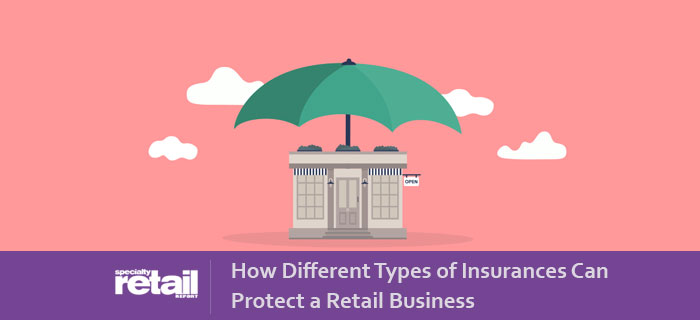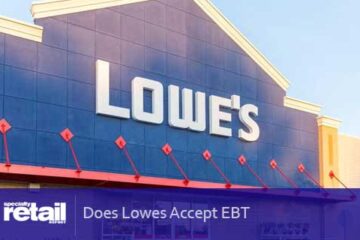Operating a retail business comes with inherent risks and uncertainties. Business owners make huge investments in terms of money and time. To safeguard your venture from potential liabilities and unexpected events, having appropriate business insurance is crucial. When you get a retail insurance, it will protect a business’s valuable assets, customers against any injuries, slips and falls and the employees present on the premises.
Moreover, getting a retail insurance will eliminate the need for a business to compensate employees or customers out of their pocket in case of a disaster. With increasing digitalization, retail businesses face cyber risks such as data breaches, hacking, or cyber-attacks.
You can also invest in a cybersecurity insurance policy to protect your e-commerce website against hackers or revenue loss. In short, you will need to examine the nature and scope of your business to determine the best insurance policy.
Let’s explore the various types of insurance coverages essential for retail businesses:
Employer’s liability insurance – Compensating work related injury claims
Retail businesses must opt for an employers’ liability insurance because it protects against employee injury or illness that arises at or due to the business. With this insurance, any legal or compensation fee linked to workplace injury are covered.
It is imperative to get the insurance for employees on the payroll even if they are temporary. You must mention the number of employees that require protection when choosing a policy. If a retail business fails to mention the exact number, the Health and Safety Executive (HSE) will issue daily fines. Moreover, businesses will have to alter the policy to ensure that seasonal workers are catered as well.
Stock and contents cover – Protecting assets and physical goods
Retail businesses often have valuable stock and contents that are critical to their operations. Stocks generally refer to the physical goods sold by the business.
On the other hand, contents cover property owned by the retail business, excluding the stock. It incorporates fixtures, fittings, equipment, furniture, signage, and other items necessary for daily operations. In case of damage or loss, the insurance compensates the business for the cost of repairing or replacing the contents.
Stock and content is a type of insurance specifically designed to protect the inventory and assets of retail businesses. This policy provides financial reimbursement in the event of loss, theft, or damage to stock and contents.
If your business operation requires transportation of stocks, then it is best to insure your shipments. This will cover mishaps during or in the area of delivery. Nevertheless, you will have to purchase a specialized insurance where vehicles are involved. Typically, this insurance is tailored to the specific needs of each retail business.
Public liability insurance – Safeguard against general public claims
Operating a retail business involves interactions with customers and members of the public. Accidents can happen unexpectedly, and a single incident resulting in injury or property damage can lead to costly lawsuits. A Public liability insurance covers compensation and legal payments in case the retail business is accountable for a client’s property damage or injury.
It can also protect the business against a contractor’s or other public member’s claim. For example, if your employee fails to place a wet floor sign after cleaning and a customer slips and break a bone. In case the consumer sues your business, a public liability insurance will cover the medical expenses and the legal costs.
Nature of the business, amount of contact you have with the public or the risks involved in the industry will determine the extent of insurance.
Glass cover – Guarding store front
The store front of a retail business is generally made with glass doors or windows. These are vulnerable to various risks such as breakage, vandalism, or accidental damage. A storefront is the face of a retail business and plays a crucial role in attracting customers.
Glass Cover Insurance ensures that any damage or breakage to the storefront glass is promptly addressed, maintaining the security and aesthetic appeal of the business premises.
Many retail business owners neglect this insurance and end up incurring a major expense. Usually, the standard business does not include coverage for signage, store front or glass furnishings. Glass Cover Insurance provides vital protection from these losses. You can also tailor this policy to meet your needs.
Business interruption insurance – Safeguarding Business Continuity
The Insurance is a vital coverage for retail businesses, ensuring financial protection and business continuity in the face of unexpected disruptions. Business interruptions are unforeseen events that can include terrorist attacks, natural disaster or even an epidemic.
By compensating for lost income, this insurance helps businesses navigate through challenging times and enable them to get back on their feet. It is typically an add-on to property insurance and covers the financial impact of business interruptions beyond the physical damage to the property. This coverage compensates for rental income, lost sales, or expedited equipment replacement.
Product liability insurance – Protecting against customer claims on harm through product
Retail businesses sell a wide range of products, including household goods, toys, or electronics. While quality and safety of the product is emphasized, there is a risk of products causing harm or injury to customers.
Product Liability Insurance is a crucial for retail businesses as it provides protection against claims arising from defective or harmful products. Along with manufacturing and design defects, this coverage also includes claims related to inadequate warnings or improper labeling of products.
By obtaining Product Liability Insurance, retail businesses can focus on providing quality products to their customers with confidence, knowing that they are protected in case of any product-related issues.
Having the right insurance coverage is crucial for protecting your retail business from various risks and uncertainties. The different types of insurances available can provide comprehensive protection, ensuring the financial stability and continuity of your business. By examining the nature of your business and the industry you operate in, businesses can better determine the kind of coverage they require to minimize unwanted losses and expenses.

Ashley G. Anderson has than a decade of experience in business strategy and retail industry. She is an expert on the U.S. and world economies. She served as president of World Money Watch, where she shared her expertise on U.S. and world economies, as well as retail industry.




